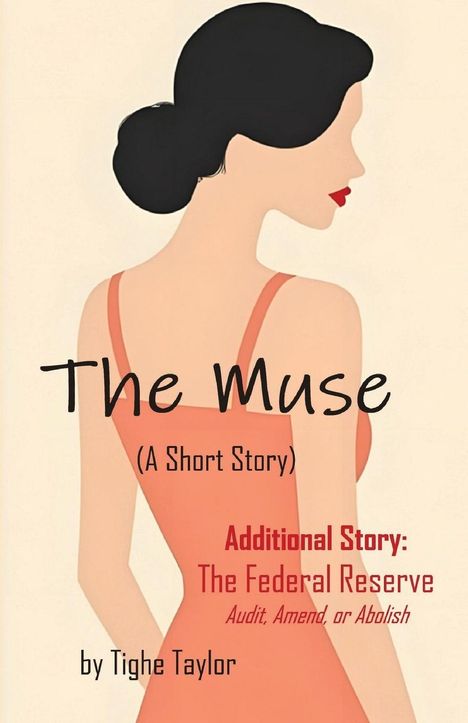Tighe Taylor: The Muse (A Short Story), Kartoniert / Broschiert
The Muse (A Short Story)
- and The Federal Reserve (Audit, Amend, or Abolish)
(soweit verfügbar beim Lieferanten)
- Verlag:
- Black Cat Publishing, 05/2025
- Einband:
- Kartoniert / Broschiert
- Sprache:
- Englisch
- ISBN-13:
- 9798218689919
- Artikelnummer:
- 12345742
- Umfang:
- 170 Seiten
- Gewicht:
- 223 g
- Maße:
- 216 x 140 mm
- Stärke:
- 9 mm
- Erscheinungstermin:
- 16.5.2025
- Hinweis
-
Achtung: Artikel ist nicht in deutscher Sprache!
Klappentext
The Muse (A Short Story)
When 42 year-old struggling artist, Conrad, meets 17 year-old Alley, her life is in shambles. He sweeps her away to Mexico where he begins a torrid affair. They return to the United States, only for Alley to learn that her older male lover is married. After winning a large sum of money he is able to send Alley home. They move on with their lives romantically, while remaining friends. Many years later, Conrad becomes a successful writer. During his lifetime, Alley never allowed herself to be interviewed about Conrad. However, after he dies, she grants an interview. The interview delves into Conrad's work, and how Alley might have been the muse for his stories, leaving Alley to wonder whether she prefers to be a significant part of his work or not. Was Alley his muse? The evidence is set forth.
The Federal Reserve (Audit, Amend, or Abolish)
The United States is required to furnish many programs. When the government takes in less money than it spends, it is said to be running at a deficit. These deficits added together comprise the National Debt. The National Debt is public or intragovernmental (between branches). It is primarily paid by the taxpayers at 48.7 percent, with corporations paying only 9.4 percent. For the 123 years before the Fed, the inflation rate in the United States was .4 (yes, that is point 4 percent, not 4 percent). Since the Fed, the inflation rate has been 3.1 percent. Before the Fed, there were 44 recessions and 6 depressions. Since the Fed, there has been only one depression. We must ask ourselves whether we want an economy with low inflation but with multiple recessions and depressions and If so, we can return to traditional banking and the gold standard.


